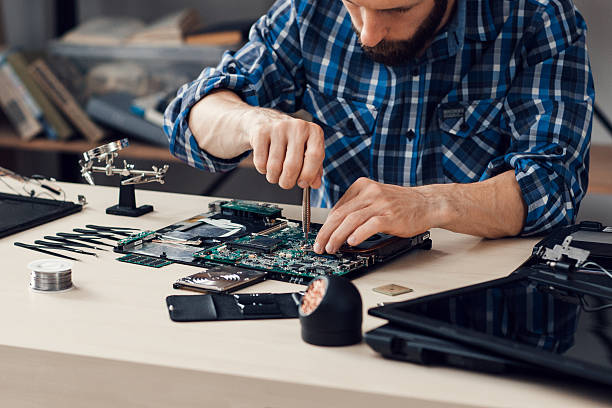About this course
Introducing Robotics Concepts to Young Learners
Introducing Robotics Concepts to Young Learners is an important educational initiative that seeks to engage and inspire children to explore the world of robotics. Through hands-on activities and interactive lessons, students are exposed to the fundamentals of robotics, including programming, sensors, and control systems. This initiative encourages children to develop critical thinking skills, foster creativity, and explore the possibilities of robotics. By introducing robotics concepts to young learners, educators can help prepare students for the future of technology and the ever-evolving field of robotics.
Exploring the Possibilities of Robotics in Education
Robotics in education is an emerging field that has the potential to revolutionize the way students learn. Robotics technology can be used to create interactive learning experiences that engage students in the learning process. Robotics can also be used to create personalized learning experiences that are tailored to the individual needs of each student. By leveraging the power of robotics, educators can create an engaging and immersive learning environment that encourages exploration and discovery. Robotics can also be used to provide students with real-world problem-solving experiences that can help them develop critical thinking and problem-solving skills. As the technology continues to evolve, the possibilities for robotics in education are limitless.
Developing Skills in Robotics Programming
Robotics programming is the process of designing, constructing, and programming robots to perform specific tasks. It involves a combination of computer science, engineering, and mathematics. It requires a deep understanding of the principles of robotics, as well as an understanding of the hardware and software used to control robots. Robotics programming requires the ability to think critically and creatively, and to solve complex problems. It also requires the ability to work with teams and collaborate with other professionals. With the right skills and experience, robotics programming can be a rewarding and exciting career.
Understanding the Ethics of Robotics and AI
Understanding the Ethics of Robotics and AI is an important and timely topic. As technology advances, so does the need to understand the ethical implications of using robotics and AI in various fields. This includes understanding the potential for bias in AI algorithms, the potential for robots to cause harm, and the ethical implications of using robots in the workplace. Additionally, it is important to consider the ethical implications of using AI to make decisions, such as in healthcare or finance. Understanding the Ethics of Robotics and AI is essential to ensure that technology is used responsibly and ethically.
Investigating Robotics in Industry and Commerce
Investigating Robotics in Industry and Commerce is an in-depth exploration of the current and potential applications of robotics in various industries and commercial settings. It examines the current state of robotics technology, the challenges and opportunities it presents, and the potential implications for businesses and society. The research includes an analysis of the current market trends, the impact of robotics on various sectors, and the potential implications for the future of industry and commerce. The research also considers the ethical, legal, and regulatory implications of robotics technology, as well as the potential for its use in areas such as healthcare, education, and transportation. This research provides a comprehensive overview of the current and potential applications of robotics in industry and commerce.
Examining the Impact of Robotics on Society
Robotics is a rapidly advancing field of technology that has the potential to revolutionize the way humans interact with the world. As robotics technology becomes more advanced, its impact on society is becoming increasingly evident. This impact can be seen in a variety of areas, including labor, healthcare, and education. By examining the effects of robotics on society, it is possible to gain a better understanding of the potential benefits and drawbacks of this technology.
Robotics technology has already had a significant impact on the labor market. Automation has allowed for the increased efficiency of many manufacturing processes, resulting in a decrease in the number of jobs available. At the same time, robotics has also created new opportunities in areas such as programming and engineering.
Robotics technology has also had a major impact on healthcare. Automated systems are being used to assist with medical procedures, allowing for more accurate diagnoses and treatments. Additionally, robots are being used to help with physical therapy and rehabilitation, allowing for improved patient outcomes.
Finally, robotics technology is being used in education to enhance the learning experience. Robots are being used to teach students in a variety of ways, from providing interactive lessons to helping with research projects. By leveraging robotics technology, educators are able to create a more engaging and effective learning environment.
Overall, robotics technology has had a significant impact on society. By examining the effects of robotics on society, it is possible to gain a better understanding of the potential benefits and drawbacks of this technology.
Exploring the Future of Robotics in Everyday Life
Robotics is a rapidly advancing field of technology that is beginning to revolutionize the way we live our everyday lives. From robotic vacuum cleaners to robotic surgeons, robots are becoming increasingly prevalent in our homes, workplaces, and medical facilities. As technology continues to advance, the potential for robotics to be integrated into our daily lives is becoming more and more realistic. Exploring the future of robotics in everyday life is an exciting and important endeavor that could lead to a variety of breakthroughs in the way we interact with the world around us. By studying the current state of robotics and exploring the possibilities for future applications, we can gain insight into how robotics can improve our lives and create a more efficient and productive society.
Comments (0)







